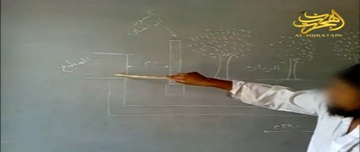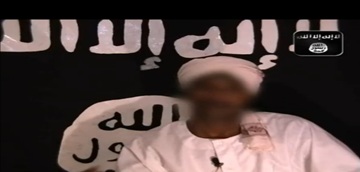US offers $10 million reward for information on assassins of USAID diplomat in Sudan
January 8, 2013 (KHARTOUM) – The United States on Tuesday announced that it is offering a total of $10 million for information leading to the arrest of two men convicted by a Sudanese court over killing of an American diplomat employee and his driver five years ago.
 “The U.S. Department of State’s Rewards for Justice program is offering rewards for information on two individuals involved in the January 1, 2008 murders of U.S. Agency for International Development (USAID) diplomat John Granville and USAID employee Abdelrahman Abbas Rahama” said a press release by the U.S. State Department today.
“The U.S. Department of State’s Rewards for Justice program is offering rewards for information on two individuals involved in the January 1, 2008 murders of U.S. Agency for International Development (USAID) diplomat John Granville and USAID employee Abdelrahman Abbas Rahama” said a press release by the U.S. State Department today.
“The Department has authorized rewards of up to $5 million each for information leading to the capture of Abdelbasit Alhaj Alhasan Haj Hamad and Mohamed Makkawi Ibrahim Mohamed, two of five individuals convicted in Sudan for the murders”.
Granville and his driver came under a hail of bullet before dawn on 2008 New Year’s Day in a rare crime of its kind in Sudan directed at foreigners.
Sudanese authorities eventually managed to capture five men, believed to be belonging to the Islamic militant group Ansar al-Tawhid, and charged them with the killing of Granville and his driver.
 Besides Makkawi and Al-Hassan this included Mohannad Osman Youssef, Abdel-Ra’uf Abu-Zaid Mohamed Hamza and Murad Abdel-Rahman Abdullah .
Besides Makkawi and Al-Hassan this included Mohannad Osman Youssef, Abdel-Ra’uf Abu-Zaid Mohamed Hamza and Murad Abdel-Rahman Abdullah .
Except for Abdullah the accused were sentenced to death by hanging in 2009 but a year later the inmates on death row managed to escape from maximum-security Kober prison in the Sudanese capital.
Later it was revealed that the government re-arrested Hamza while the family of Youssef said he was killed in Somalia without giving details.
In late December Al-Qaeda affiliate released a detailed 41-minute video on YouTube purportedly filmed inside prison showing the escape route and plan of the four men.
Makkawi and Al-Hassan explained on the video that they dug their way through the kitchen floor all the way to freedom.
The video showed pictures from the inside of the tunnel that they dug through.
The four inmates dug between 0.5 and 1 meters daily using plumbing pipes through the kitchen floor every day after sunset prayers. After they finished they covered the hole in a way making it difficult for anyone to suspect anything.
The Sudanese government which at the time said the prisoners used sewer pipes to escape marinated silence on the video.
U.S. Congressman Brian Higgins told ‘The Buffalo News’ that such a big-money reward may be just what’s needed to find the fugitives.
Higgins has been working on the matter with the Granville family for years, and he pressed the State Department to offer the reward.
“Perhaps they look to targets that are realistic when offering this kind of money,” said Higgins, who discussed the case with a top USAID official on Tuesday. “I think they’re closing in on them.”
“We think this is a major breakthrough,” said Higgins, who serves on the House Foreign Affairs Committee. “Money is important in that part of the world, as it is everywhere – especially a reward of this magnitude. I think it will be helpful in apprehending the murderers.”
The lawmaker discussed the case today with Earl W. Gast, assistant administrator for Africa at USAID. Afterward, Higgins said the fugitives could now be allied with al-Shabaab, the dominant terrorist group in Somalia.
“My sense is that they [federal authorities] have more information than they’re sharing, obviously, about their whereabouts,” Higgins said.
A cousin of Granville speaking to the same newspaper expressed skepticism on how the men managed to escape so easily.
“I find it incredibly hard to believe that these four men just got out through a sewer pipe and had a car waiting for them,” Paul F. Granville, a cousin of the slain diplomat’s late father said.
The warden of Kober prison was suspended from duty over the incident but was later reinstated after being cleared from negligence.
The United States at the time had called on the Sudanese government to “initiate a thorough investigation of the circumstances surrounding this escape” and “to prosecute, to the full extent of the law, any individuals or groups found complicit in the escape of these criminals”.
For a decade after Sudanese president Omer Hassan al-Bashir came to power in an Islamist-backed military coup in 1989, Sudan became a notorious refuge for militant Islamists.
These included Al-Qaeda mastermind Osama bin Laden, who was killed by US special forces in Pakistan last year and who was based in Khartoum between 1991 and 1996, where he ran a thriving construction business and built mujahideen training camps.
But in the last ten years Khartoum has stepped up its counter terrorism cooperation with the U.S. and denounced its support for militant groups.
(ST)
